Flooring tiles are available in a range of materials, but among them, porcelain and natural stone are often popular choices. They are both such great materials, it can be difficult for homeowners to choose between the two. Review the advantages and disadvantages of both to help you choose the proper material for your project.
Porcelain tiles offer greater savings if budget is a concern for your project. Natural stone is one of the most expensive tiles available, and expenses also extend into the installation phase of your project.
While porcelain installation comes with its own set of challenges unless it is installed correctly, additional labor is charged to pre-seal natural stone if it’s required and can lead to a much more expensive to install.
Due to the natural irregularities in the surface of the material, natural stone installations also call for thicker adhesives. Natural stone needs to be installed by an experienced hand, especially marble, as some types of marble will warp if the wrong adhesive is used during installation.
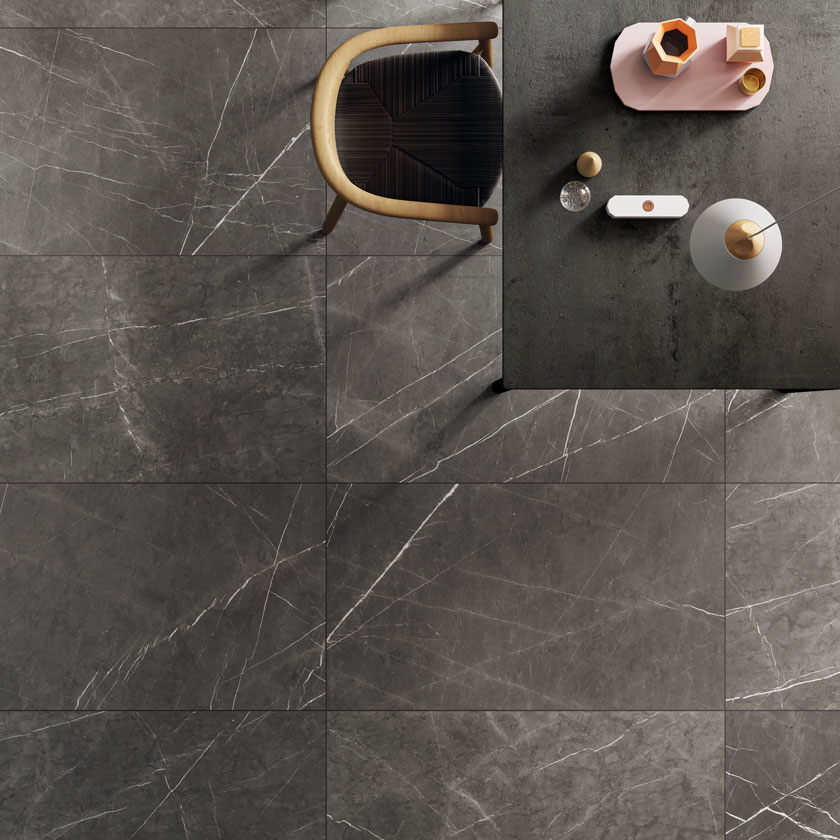
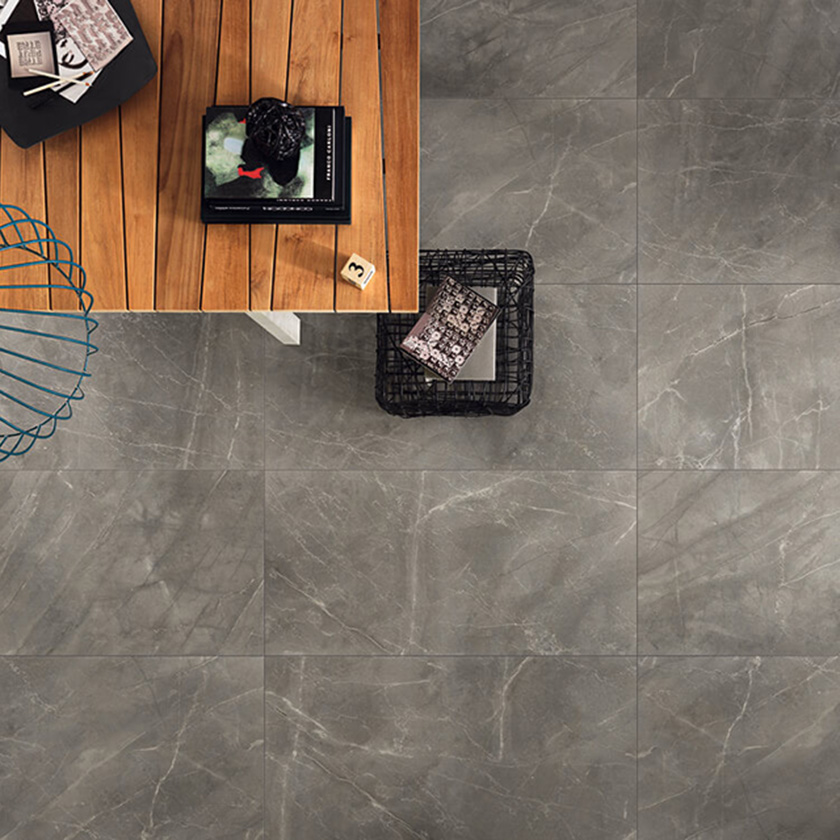
As a natural material, the patterns found in natural stone are unique. Every tile is distinctive, ageless and beautiful. Porcelain, however, is a manufactured product created to mimic the look of natural stone. Some high quality porcelain tiles look and feel incredibly like natural stone, but if you look closely you’ll notice the tell-tale repetition that points to imitation since porcelain tiles are not individually unique.
Natural stone tiles come with certain limitations in color patterns based on the variation of stone being used. For example, although vein colors can vary considerably, the core color of the stone tends to be restricted based on whether you’re looking at stone, marble, or granite.
Although porcelain merely mimics the look of natural stone, because it is a manufactured product, it is available in a much wider range of colors.
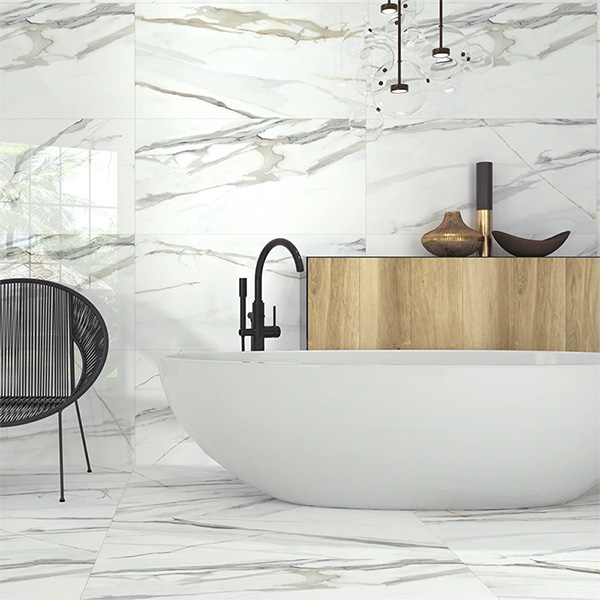
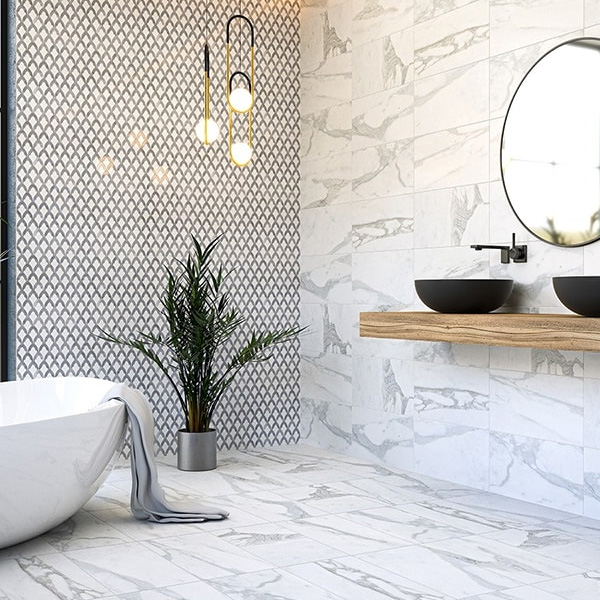
Natural stone tends to be porous and moisture-sensitive due to the material’s characteristic inclusion of tiny fissures, holes, chips and weak spots. This proneness to staining as a result, requires natural stone to be sealed regularly in order to resist moisture.
On the other hand, porcelain is virtually impermeable to moisture. Unlike natural stone, it has hardly any pores available for moisture to penetrate. However, the material’s lack of pores also makes it more difficult for adhesives to bond to the tile which results in a less forgiving installation process.
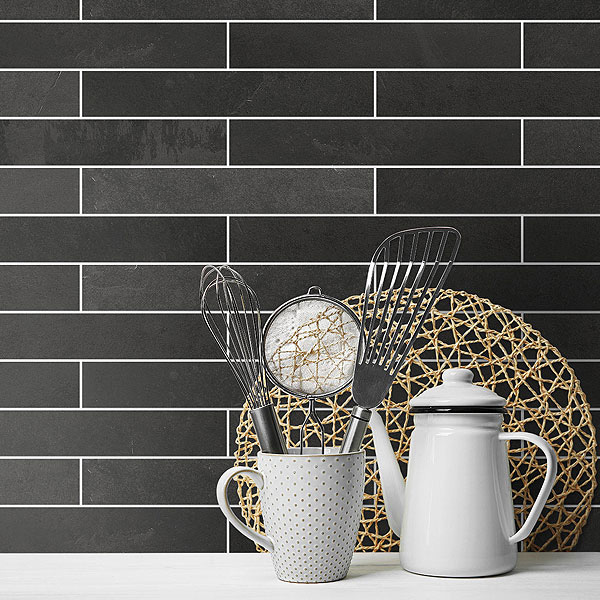
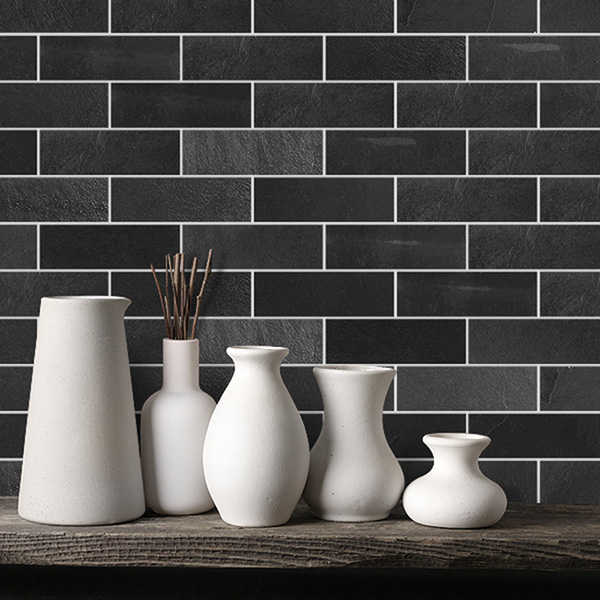
Natural stone tile’s maintenance needs tend to be determined by choices made during the purchasing process. For example, polished tiles have fewer maintenance needs than unpolished ones. The type of stone also makes quite a difference, for example granite requires less maintenance than marble, which is a much softer stone.
Porcelain is extremely resilient and as such requires very little maintenance. As a result, those who want the aesthetics of stone without the material’s high maintenance problems often choose porcelain tiles.
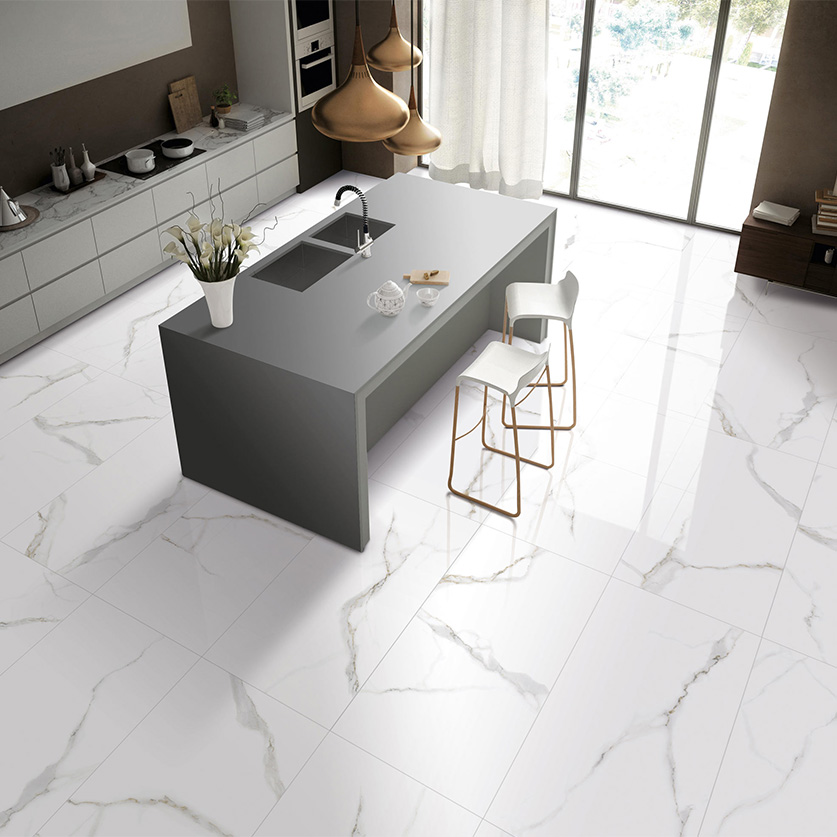
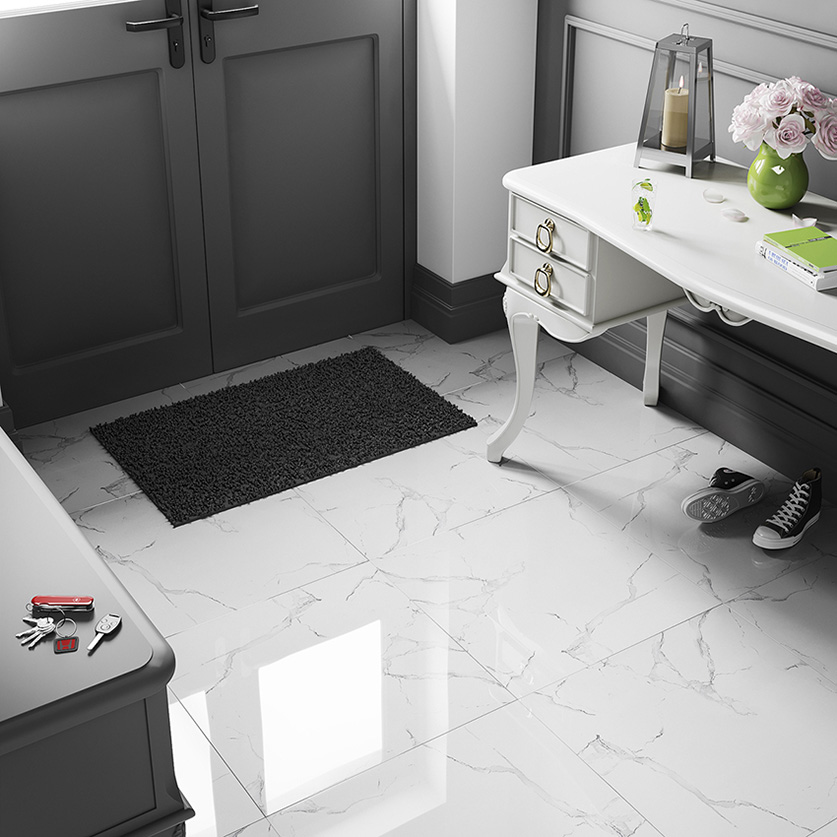



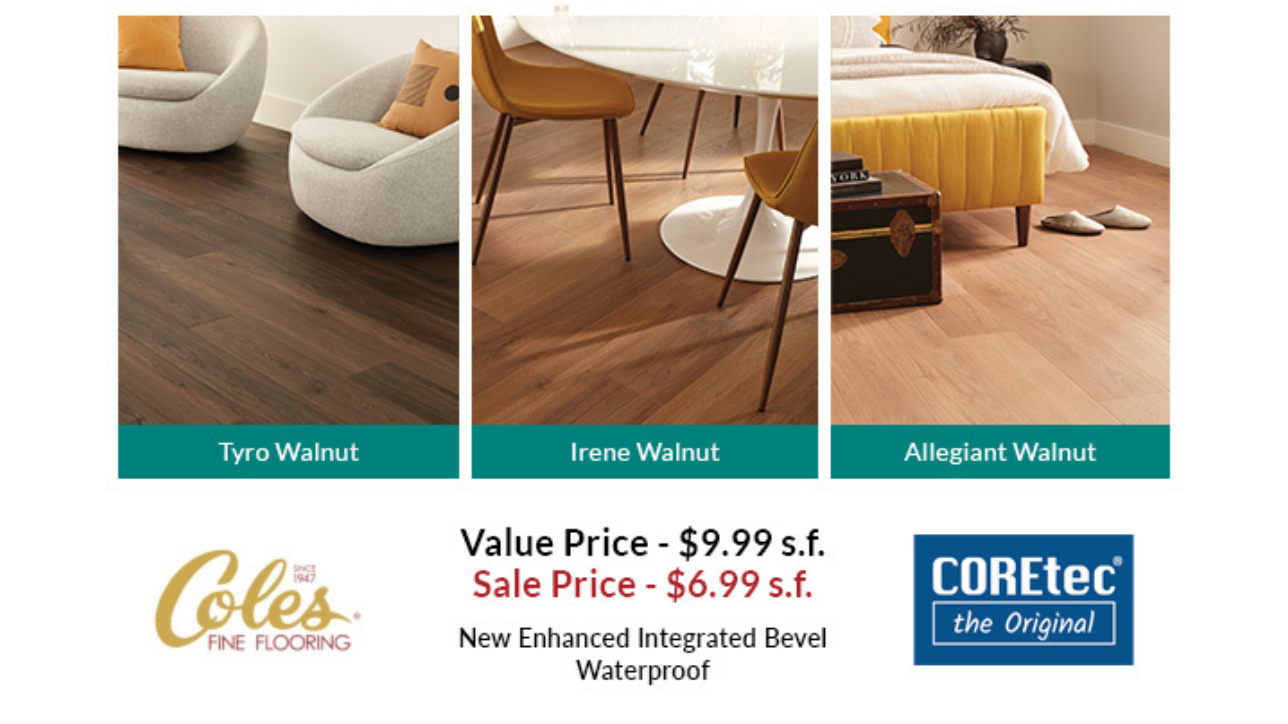
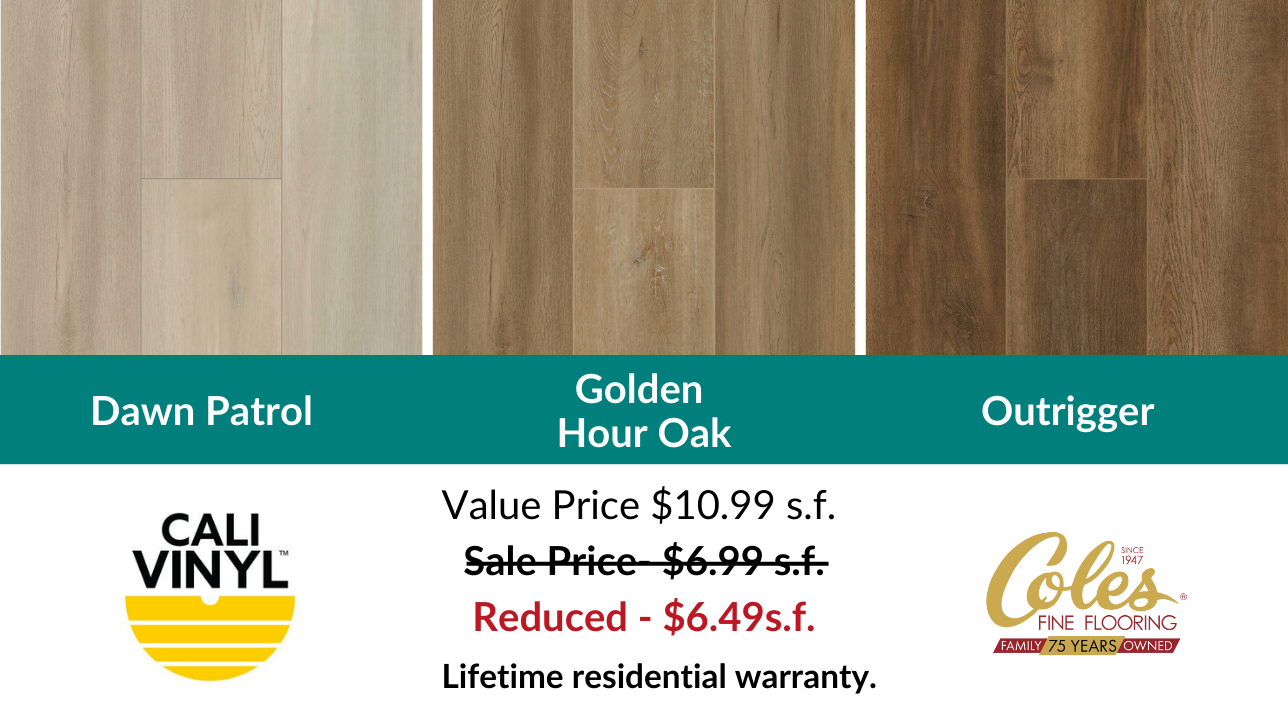
 Prelude Version 2.1
Prelude Version 2.1